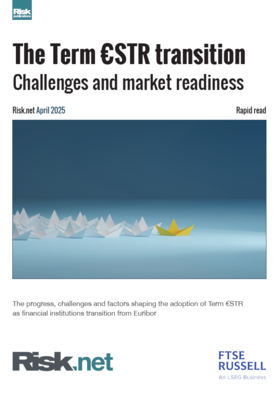The Term €STR transition: challenges and market readiness

The transition from Euribor to the Term euro short-term rate (€STR) is a significant shift in financial markets, requiring institutions to adapt their contracts, systems and risk frameworks. While some firms have made strides in implementing Term €STR as a fallback benchmark, many remain undecided or lack urgency due to the absence of a definitive Euribor cessation date.
A Risk.net survey of financial institutions reveals a strong preference for widely adopted and regulatory-compliant benchmarks, with industry alignment being a critical factor in decision-making. However, uncertainty around regulatory guidance, standardised contract templates and the benchmark’s role in new financial agreements has slowed adoption.
This report explores the current state of Term €STR implementation, the barriers to broader adoption and the steps required to ensure a smooth transition. Clearer regulatory direction, market co-ordination and increased awareness of Term €STR’s reliability and trade-based foundation could accelerate its uptake.
Download the whitepaper
Register for free access to hundreds of resources.





